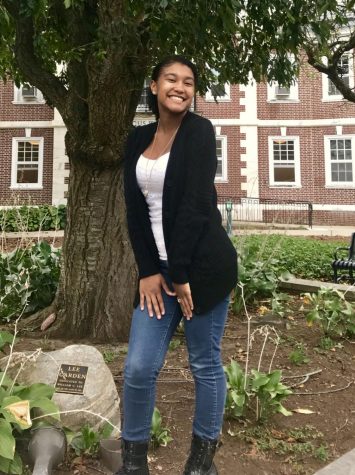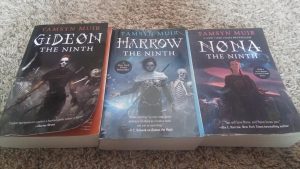Author Speaks On The Rich History Of Eastern Europe
January 30, 2019
Over a dozen people gathered in Central Connecticut’s new Willard DiLoreto building to listen to George Rados speak about the long and rich history of a country some may seem to know little about — Macedonia.
Gilbert Gigliotti, an English Professor for CCSU invited Rados, author of “Makedonia: The Gordian Knot Unraveled,” to speak on the history and politics of the Republic of Macedonia.
Rados spoke on the origins of the country and the division into Greece, Serbia, Bulgaria and Albania.
“One thing on our planet that does not lie is the edging on stone. That cannot be changed. All monuments that have been found within Greece-Macedonia, Albania-Macedonia, Bulgaria-Macedonia, everything is written in Greek.” Rados said.
Rados also touched upon the current state of the Republic of Macedonia’s government, which is currently divided on several matters amongst its people.
According to Rados, the Republic of Macedonia’s government has attempted several times to change the country’s name to just Macedonia, which many the people disagree upon since they do not relate to ancient Macedonia. He claims most of the population is Bulgarians, Turkish, Serbians, Gypsies and very few Greeks.
With the country’s division, Rados emphasized the importance of placing faith into one’s country first rather than its political parties.
“When you have to protest against your own government because you feel patriotic and the government is not doing the service it’s supposed to be doing, it is a very sad affair,” Rados stated.
“We have our differences here in the United States. We do protest unless we are violent in our protest our government never [attacks] us. But as a historian, I’ve found that most people are for the party and not the country. Please, young people, do not do that. Be passionate about our country as a whole not do not be passionate about the political party alone.”
Gigliotti hoped Rados’s visit would encourage students to become better informed on the Republic of Macedonia.
“His view was very balanced and insightful and someone from the region who know understands it can bring something which I cannot,” Gigliotti said.
“I wanted my students to get a history of the region [and] with so many members in the greek community here at Central that made it exciting,” he continued.
Gigliotti said he hopes the experience will be useful for students when the class visits the city of Giannitsa, which was originally part of North Macedonia, later this semester.
“I developed this class specifically to bring students to Giannitsa, with hopes to also draw students to Central and just to get more of our students to the various sister cities,” Gigliotti said. “The trip will include visits to Ancient Pella, a visit to the foot of Mount Olympus and other various things in the region.”
Giannitsa is one of many of New Britain’s several sister cities across the world, others are located in Japan, Sicily, Poland and Germany.







